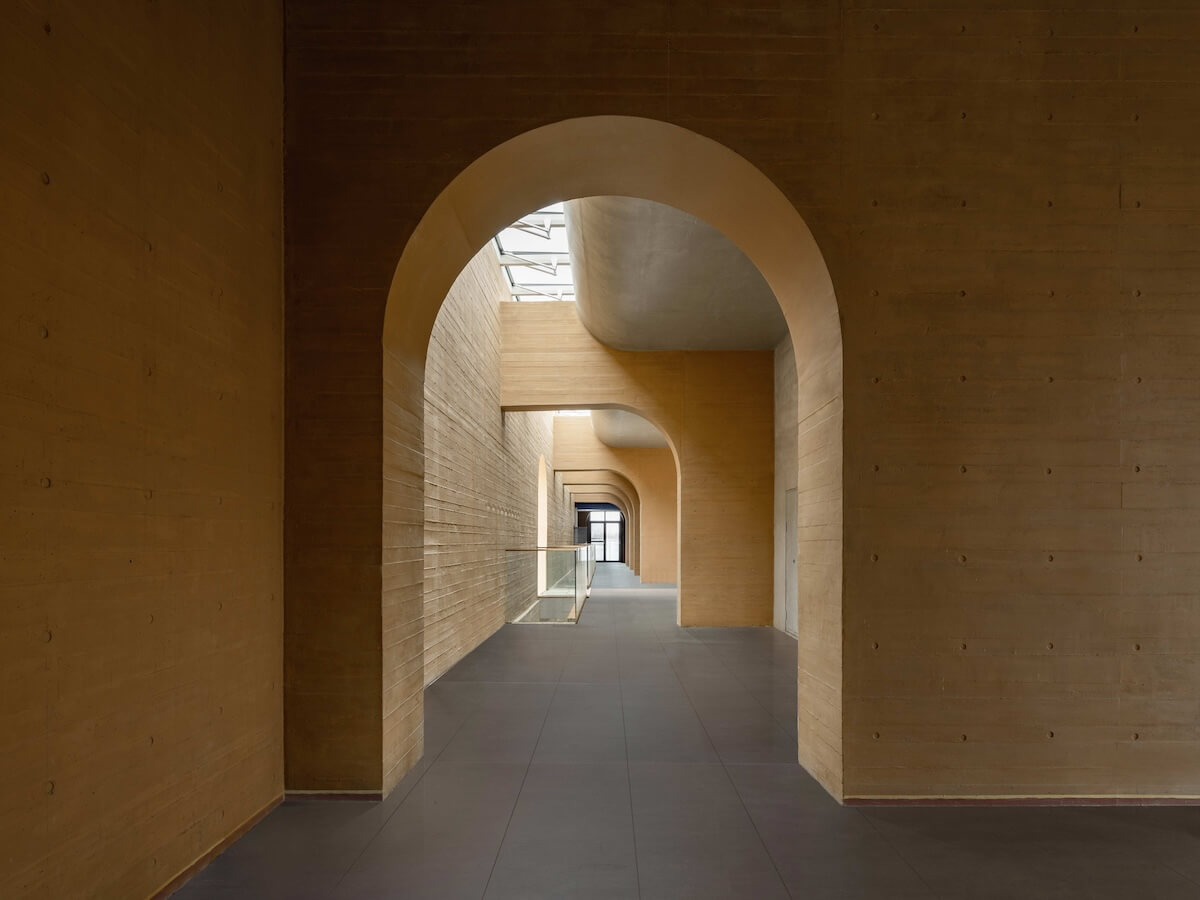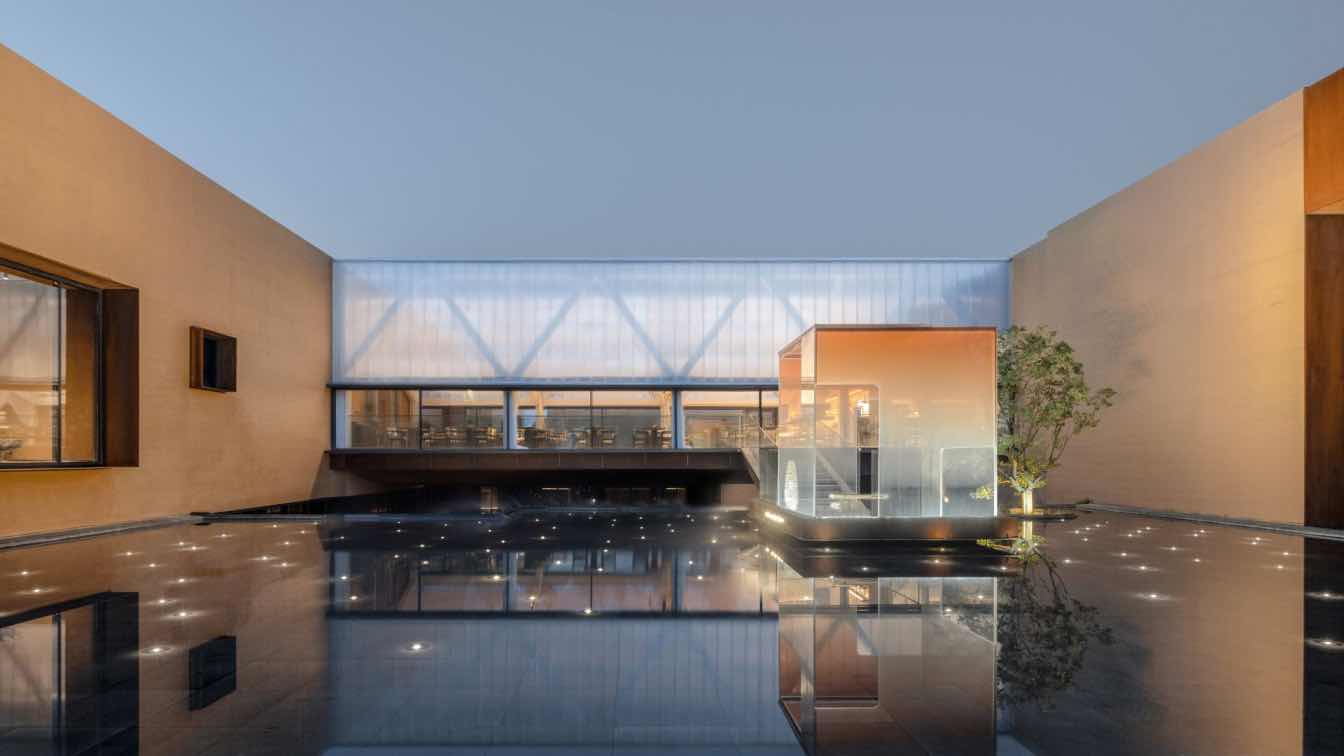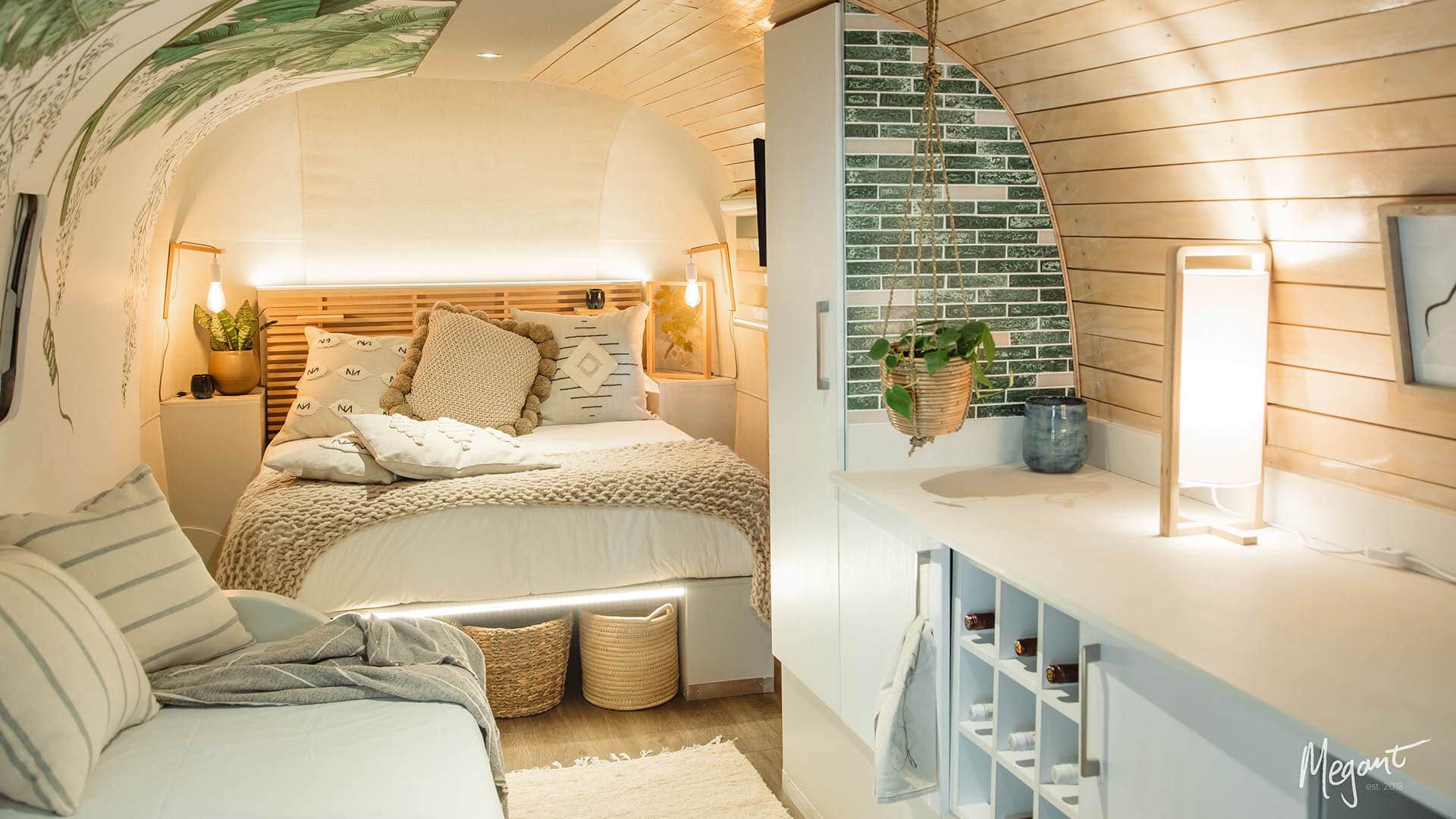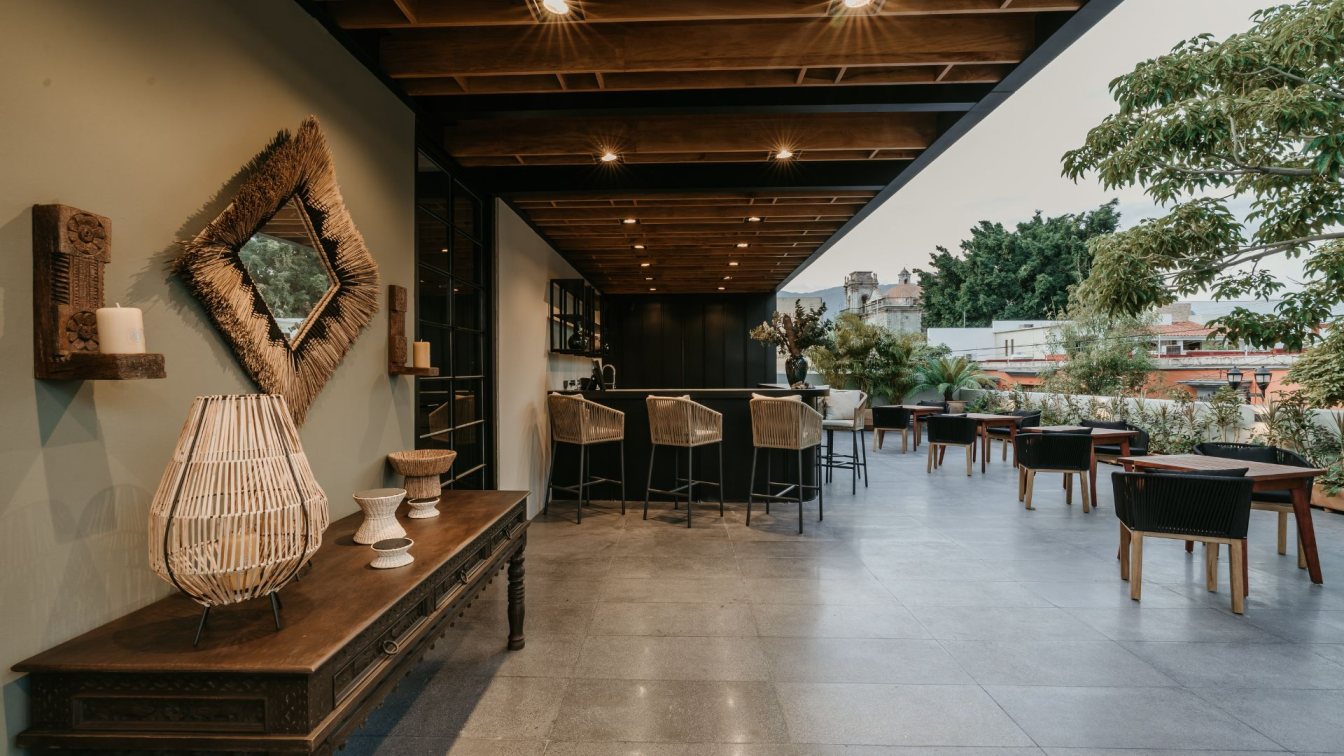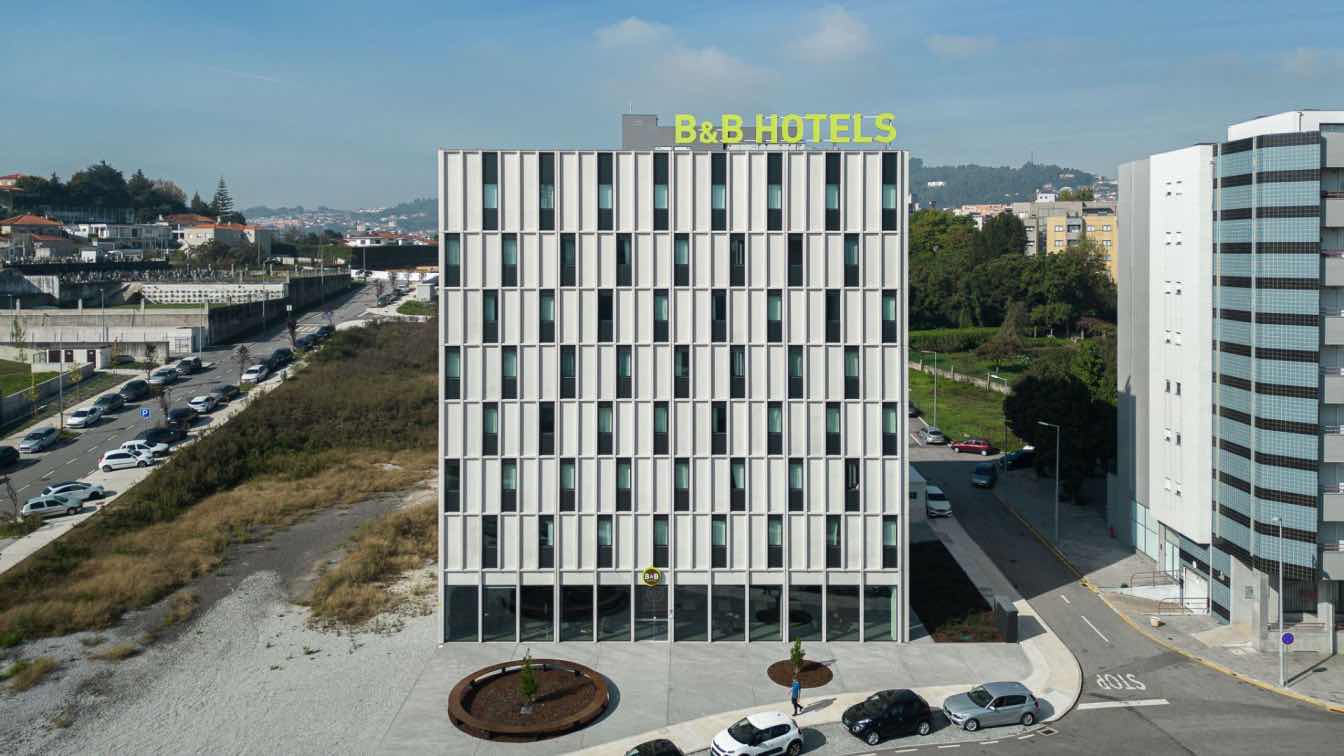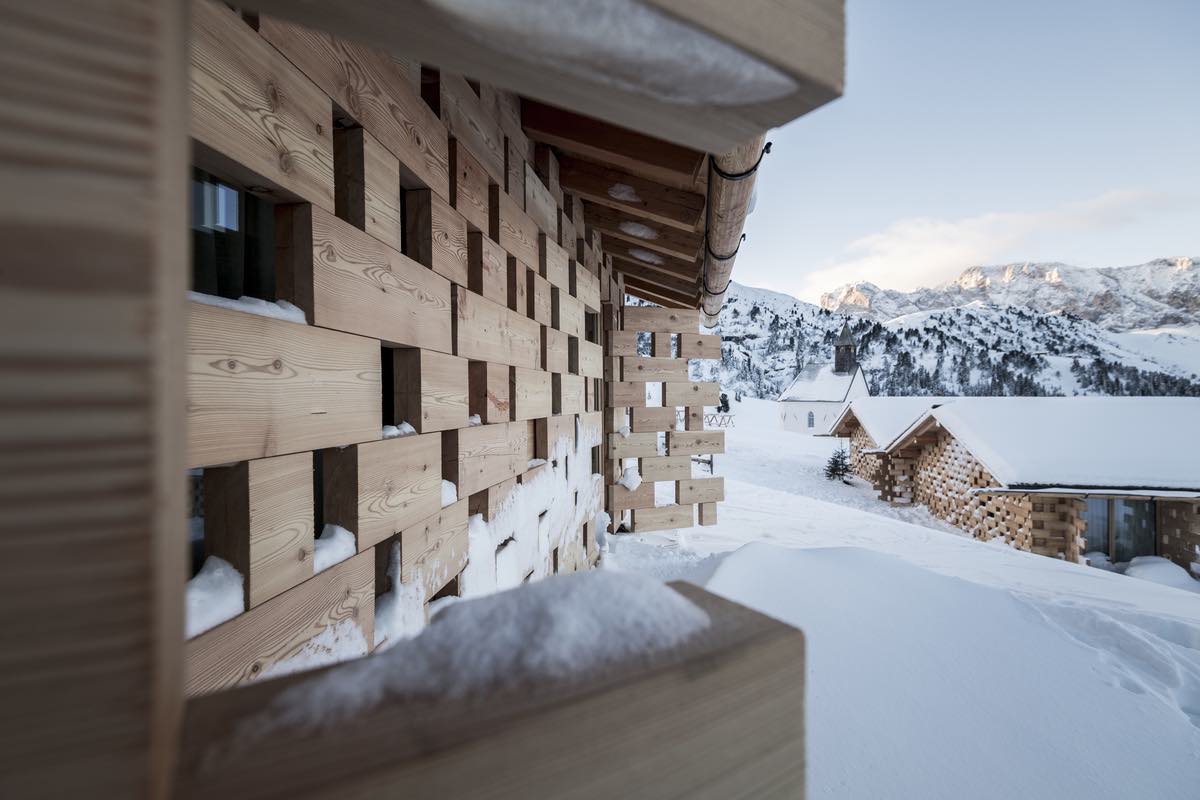STUDIO A+: Situated in Fengxi New City, Shanxi Province, China, the Mu Feng Yue Hot Spring Hotel emerges as a serene retreat, nestled in the natural wilderness yet mere moments from the urban bustle. This hotel represents a seamless fusion of city life and nature, providing guests with a peaceful and refined sanctuary. The architectural approach adopted here emphasizes harmony with nature and thoughtful adaptation to the surroundings, resulting in a design that boasts a rustic façade paired with a rich interior.
This establishment isn't merely a structure; it's an environment crafted through strategic placement of walls that redefine and choreograph the space. These walls fold and unfold the spatial experience, integrating the "environment" with its larger context. The sunken courtyard, tailored to the local condition, gives the impression of the structure emerging organically from the land. The choice of materials such as rich earth-toned, timber-textured bare concrete complements the natural hues of the surroundings. Key features include the ethereal "rice paper lantern" suspended tearooms, reflective pools, sloping water surfaces, and Zen-inspired orange glass pavilion set over water, all contributing to the hotel's enigmatic allure.
This 3,440 square meter hotel provides 6 luxurious guest rooms, each with its own indoor pool, while 8 outdoor pools with dedicated showers and lounges are also available to visitors.
Fine dining halls and tearooms specialize in local flavors. The hotel’s 10,005 square meter of the land area allows for a sprawling layout that can include gardens, water features, lawns and seasonal flower seas. The hotel becomes an attractive option for those wishing to find peace and indulgence in an urban oasis.

Notably, this project adeptly incorporates an urban pumping station and a power distribution facility buried on the second underground level. The building was constructed atop pre-existing structure, constrained by the limitations of the site. In order to minimize earth backfilling, the architect has strategically positioned the building functions starting from the first basement level, ingeniously using the landscape to craft a sunken courtyard connected to the ground level via green slopes on two sides. This approach not only reduces costs for the developer but also demonstrates a profound respect for and utilization of the site natural condition.
Moreover, the project features temperature-sensitive skylights that smartly open to enhance air circulation and adjust the indoor microclimate, infusing vertical natural light into public spaces. A series of light-guiding tubes channel daylight to lower levels, promoting energy efficiency. The rooftop, abundant with greenery, purifies the air and harnesses rainwater, offering energy savings and cooling for indoor spaces. These environmentally sensitive designs significantly reduce long-term operational costs, reflecting a commitment to sustainable architecture.













